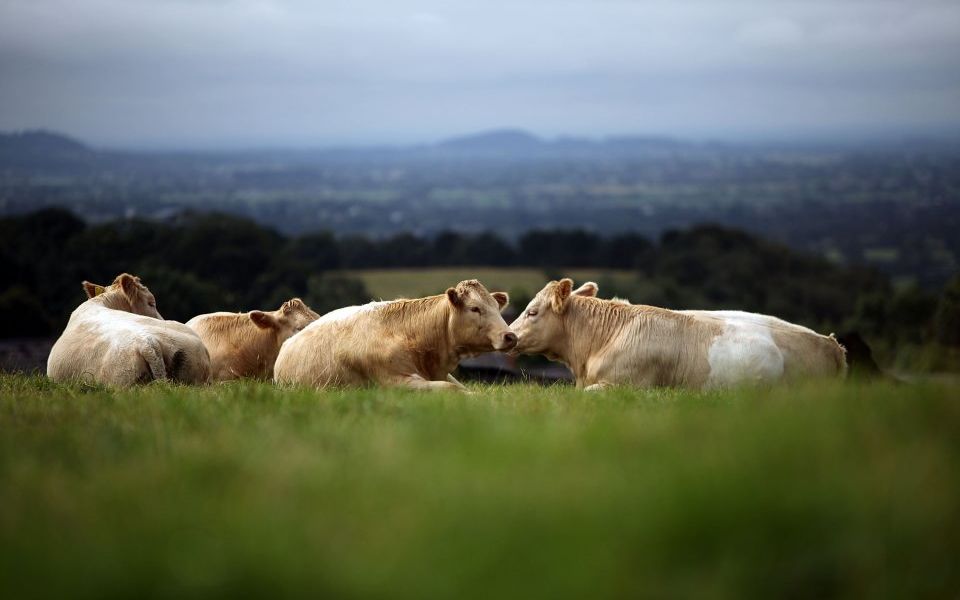Connected cows and smart salmon: The internet of things is taking on farming

The summer heatwave has dried up any complacency that food production in the supposedly green and fertile lands of England and Wales is a relatively straightforward business.
The 55,000-strong National Farmers’ Union described the months of heat as a “wake-up call” for the agricultural industry, as an emergency summit was called to address the “crippling impact” of the hot weather.
The soaring temperatures did little to distract from the prolonged uncertainty around the UK’s future relationship with the EU. In the farming world, questions are constantly being asked about whether the free flow of agricultural goods between Britain and the EU will be able to continue unhindered.
Read more: There's nothing artificial about AI’s influence on the financial world
What is certain, whatever happens with Brexit, is that a more productive UK agriculture sector would be beneficial, especially as the risk of unpredictable weather increases.
Technology has a crucial role to play here, and the internet of things (IoT) in particular could be set to revolutionise agriculture. The combination of sensors, big data, and machine-learning algorithms can give nature a voice and make the UK farming industry more productive, efficient, and profitable, regardless of either the weather or the EU.
If our farmers listen and adopt new technology, they could have a clear advantage over their rivals.
Take milk, for example, of which the UK is a huge importer. Raising the productivity of domestic herds, even by a few percentage points could make a big difference.
Dutch-based IoT business Connecterra has developed technology which can achieve just that. It uses Google’s open-source TensorFlow network alongside neck-worn sensors to help dairy farmers monitor their cows’ habits: eating, walking, response to heat, and even the animal’s chew count.
This raw data is then sent to the cloud, analysed by AI algorithms, and laid out in a farmer-friendly app called Ida. The platform allows users to determine a cow’s activity and general health, and helps farmers to make data-backed decisions to improve milk production. If every cow in the UK were connected, the impact would be game-changing.
The growing “agritech” sector currently contributes more than £14bn a year to the UK economy. And innovations in this space are providing benefits off the land too. A company developed in collaboration with the Bergen-based Norwegian Institute of Marine Research is hoping to transform the fish farming industry.
CageEye’s technology combines a hydro-acoustic system that measures the behaviour and appetite level of salmon with continuous and extensive analytics. It enables fish farmers to automate the feeding process, save substantial sums on feed waste, and increase yield. A more profitable industry means more cash for expansion and investment, as well as increased sustainability for the UK food supply.
The UK’s food and farming industry should embrace agritech to build a more sustainable and prosperous future. The government has already invested £160m in the sector, but more private and public money will be needed for Britain to become a world leader in the space.
An agricultural sector that is committed to using the latest technology could inject much-needed positivity about the future for farmers everywhere. As the summer draws to the end, don’t let a renewed interest in agritech chill.
Read more: Connected cows: An actually useful example of the Internet of Things